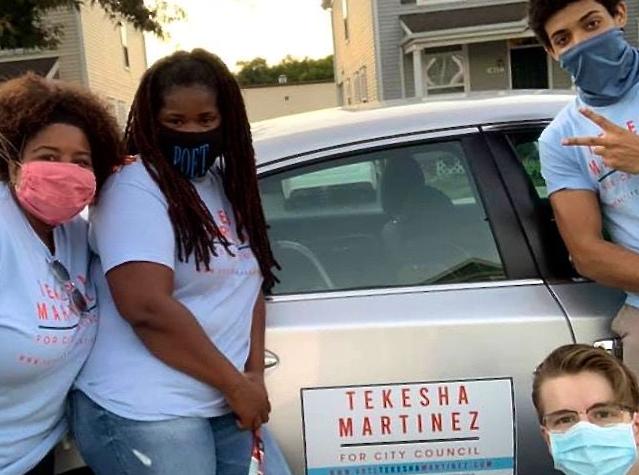But in this moment of rising unease, it was noticeable what Biden did not say in his speech. He did not extend any sort of olive branch to Senate Republicans to restart bipartisan negotiations on a stimulus bill, and he danced around the question of whether the nation needs another wide-scale closure of businesses and schools.
What happens with a stimulus bill and business closures in the next few weeks will play a crucial role in the health of the economy that Biden inherits on Jan. 20. Some argue that his lack of clarity on these issues is an attempt to keep his options open. But the nation is increasingly looking to him for guidance.
Economists are overwhelmingly urging Congress to pass another stimulus package. The sticking point has been the price tag. House Democrats passed a $3 trillion stimulus bill in May. Senate Republicans swiftly rejected it and have made it clear they don’t want anything bigger than $1 trillion, though their most recent offers have been closer to $500 billion. Biden did not attempt to close that gap on Monday. Instead, he went out of his way to praise the Heroes Act, the Democratic bill that the GOP has said isn’t happening.
“Right now, Congress should come together and pass a covid relief package like the Heroes Act,” Biden said.
His words make it increasingly less likely that there will be a deal by the end of December, when unemployment aid is set to expire for as many as 13 million Americans, and student debt relief and a nationwide eviction moratorium also go away.
Many left-leaning economists, including Jason Furman, a former chief economist to President Barack Obama, have urged Biden and House Speaker Nancy Pelosi (D-Calif.) to take a smaller deal now to lock in some stimulus funding. Something is better than nothing for millions of struggling Americans and small businesses, they say.
“We are 10m jobs short, virus is spreading, millions are weeks away from losing benefits, we should not wait any longer to act,” Furman tweeted over the weekend. “The idea that we can get a better deal if we delay until February is both wishful thinking and ignores the suffering now.”
Furman’s call comes alongside a chorus of voices from the Federal Reserve and the private sector calling for immediate aid. As the number of coronavirus cases rises, customers aren’t visiting restaurants and stores regardless of whether there is an official stay-at-home order in place or not. There’s growing concern that many small businesses won’t make it through the winter.
“The longer you wait on stimulus, the more scarring there will be,” said Diane Swonk, chief economist at Grant Thornton. “The pullback in high-frequency data is dramatic already. If we don’t get a negative employment number in November, I think we will have one in December.”
Biden’s remarks Monday were especially surprising after his new chief of staff, Ron Klain, appeared on a Sunday morning talk show endorsing swift action on a stimulus proposal, which many interpreted as support for some sort of compromise package.
“We need action during the lame duck. There are a lot of things that are going to have to wait until Joe Biden is president. This is not one of them,” Klain said Sunday on NBC News’ “Meet the Press.”
The stock market keeps rallying on promising news that a vaccine — or even multiple vaccines — could be ready soon. But it will likely take months before the use of any vaccine is widespread enough to be a real tipping point for the economy. In the meantime, the hardest question many parts of the country are facing is whether to severely restrict businesses and schools again — so called “stay-at-home orders” or “lockdowns.”
Biden did not mention anything about lockdowns or staying home during his opening remarks. When pressed by a reporter about whether he thinks the United States needs more stay-at-home orders, Biden would say only: “It depends on the state.” Biden then pivoted to praising several governors, such as those in North Dakota and Michigan, for taking decisive action in recent days to impose mask orders and scale back business activity.
There continues to be tension in the Biden camp about how far to go on nationwide restrictions. Members of his coronavirus task force have given mixed messages in recent days.
Last week Michael Osterholm, one of the Biden advisers, warned that the nation was facing a “covid hell” and suggested that a four to six-week lockdown would be appropriate, something many business owners are fighting against.
On Sunday, Vivek Murphy, the former surgeon general and another Biden adviser, called shutdowns a “last resort,” on Fox News Sunday, but kept the door open. In contrast, Atul Gawande, another adviser, told ABC’s “This Week” that “We are not in support of a nationwide lockdown.”
Biden’s coronavirus task force does not have an economist. If cases keep rising, Biden is likely to have to face the question of whether to shut down more parts of the economy in late January. President Trump has made it clear he does not support new restrictions, but Biden has stressed he will listen to the scientists and doctors. Right now, his own advisers appear mixed, and it showed in his own cautious messaging Monday.







